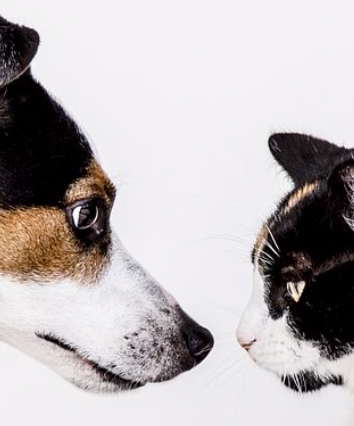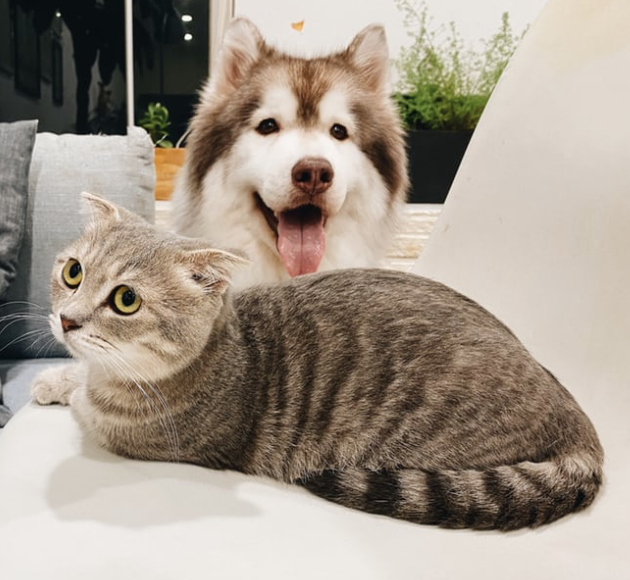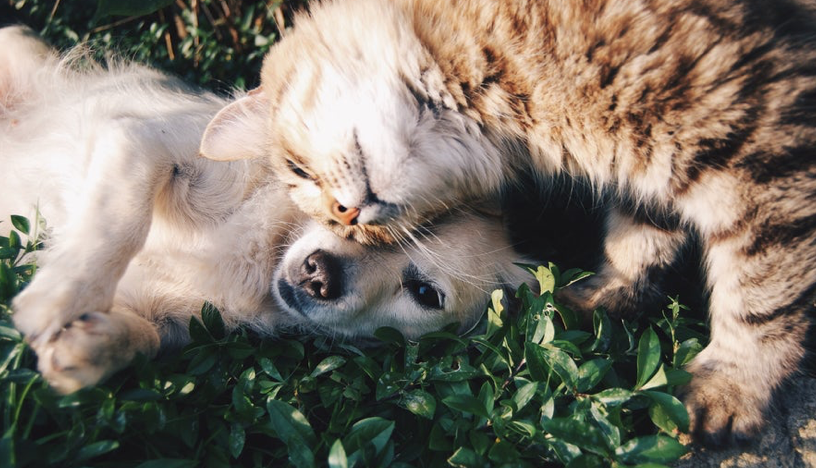by Nkem Iregbulem
Originally published March 24, 2020; Updated Jan. 12, 2022
Americans love their pets. More people own pets now than ever before, and the American Pet Products Association [APPA] predicts that pet ownership will continue to grow over the next few decades. According to a recent APPA National Pet Owners Survey, 67% of U.S. households, or 84.9 million homes, currently have pets — with most households owning a dog as a pet. Other commonly owned pets in households include cats and fish.
As pet ownership rises, so does the amount of money that households spend to own and take care of their pets. It is estimated that consumers collectively spent $100 billion in 2020. A table in a report from the Insurance Information Institute reports on the type and magnitude of expenses faced by cat and dog owners annually by survey participants. For cat and dog owners, reported annual expenses came from surgical and routine vet visits, food, food treats, toys, grooming, vitamins, and kennel boarding. Surgical vet visits were reported to cost around $426 annually for a dog and around $214 annually for a cat. Dog and cat owners reportedly spent an average of $259 and $228 respectively on pet food in a year.
Given the continued increase in the amount of money we spend on pets, you may want to look into pet stocks — stocks that benefit from this exact type of spending activity. Take a look through a couple of pet stocks, and you just might find yourself a treat. Your options include Patterson Companies Inc. (PDCO), Bayer AG (BAYRY), Henry Schein Inc. (HSIC), PetMed Express Inc. (PETS), Central Garden & Pet Co. (CENT), and Heska Corp. (HSKA). All of these stocks can be found on the NASDAQ exchange except for Bayer, which trades over-the-counter.
Your first option is Patterson Companies Inc., a medical supplies company involved in the research, development, and distribution of veterinary and dental supplies. The company was founded in 1877 and is headquartered in Minnesota. It has three operating segments: Dental, Animal Health, and Corporate. Under its Animal Health operating segment, it provides animal health services, technologies, and products such as pharmaceuticals, vaccines, diagnostics, antibiotics, equipment, and software to veterinarians, other animal health professionals, producers, and retailers.
Patterson Companies Inc. has a market cap of $2.75 billion and pays a fairly high dividend yield of 3.71%. It also has a trailing P/E ratio of 13.8.
Based in Germany and founded in 1863, Bayer AG is a multinational pharmaceuticals and life science company. The company operates through its Pharmaceuticals, Consumer Health, Crop Science, and Animal Health segments. Under its Animal Health segment, the company researches, produces, and distributes prescription and nonprescription veterinary products and solutions to help prevent and treat diseases in companion and farm animals. Its main products include human and veterinary pharmaceuticals, biotechnology products, agricultural chemicals, and high value polymers.
Bayer AG has a large market cap of $60 billion and pays a dividend yield of 4.02%. It trades at 13.3 times earnings.
Another option is Henry Schein Inc., a company that distributes dental, medical, and veterinary healthcare supplies and products. The company was founded in 1932 and is headquartered in New York. It has two main operating segments, namely its Health Care Distribution segment and its Technology & Value-Added Services segment. Through these segments, it provides vaccines, pharmaceuticals, surgical products, equipment, and other products to its customers around the world.
Henry Schein Inc. has a market $10.77 billion and does not pay a dividend. It trades at 17.14 times trailing earnings.
You might also consider PetMed Express Inc., a Florida-based company founded in 1996. The company operates as a pet pharmacy and offers pet medications, supplements, and pet supplies such as food, beds, and crates for dogs and cats. With its pharmacy license, it sells both prescription and nonprescription pet medications. The company also frequently researches new healthcare products.
PetMed Express has a smaller market cap at $408 million and pays a high dividend yield of 6.13%. It trades at 25.14 times trailing earnings.
Founded in 1955, Central Garden & Pet Co. is a California-based company that distributes garden and pet supplies across the United States. It has two main operating segments: Pet and Garden. Under its Pet segment, the company offers products for dogs and cats such as edible bones, edible and non-edible chews, pet food, toys, carriers, treats, and grooming supplies. It also offers appropriate food and supplies for birds, fish, reptiles, and horses. These products are primarily sold to independent pet distributors, mass merchants, retail chains, grocery stores, and bookstores.
Central Garden & Pet Co. has a market cap of $2 billion and does not pay a dividend. It trades at 13.8 times trailing earnings.
One more option is Heska Corp., a company founded in 1988 and headquartered in Colorado. The company manufactures, distributes, and sells veterinary diagnostic and specialty products. These products are primarily used in canine and feline healthcare markets. The company operates through two segments, namely its Core Companion Animal Health segment and its Other Vaccines, Pharmaceuticals and Products segment. Through the former, the company provides veterinary imaging instruments and services, veterinary chemistry analyzers, veterinary hematology analyzers, chewable treatment tablets, and allergy products. Through the latter, the company offers vaccines and biological and pharmaceutical animal health products to animal health companies and veterinarians.
Heska Corp. has a market cap of $795 million and does not pay a dividend. However the stock is currently generating negative earnings.
There are a few other pet related companies such as Phibro Animal Health Corporation (PAHC), which has a market cap of $600 million and a yield of 3.3%.
Maybe you should get your paws on one of these stocks, when the price is right.
Disclosure: Author did not own any of the above stocks at the time the article was written.



